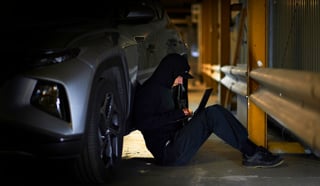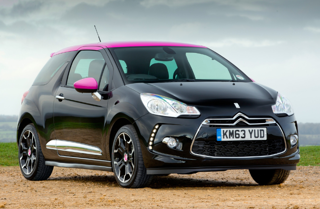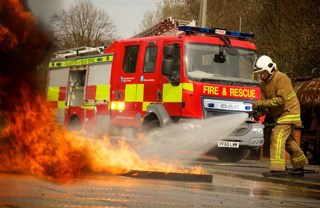Stephen Briers: What else apart from fuel is high on your agenda?
Frank Spencer, purchasing and operations manager at Triple Red: Managing risk. We check our drivers’ licences every six months.
David Whitaker, operations director at Warren Board Sales: Probably the biggest challenge for me is merging the competing priorities of driver aspiration and expectation with cost and environmental concerns.
All company cars are sub-120g/km, with insurance limits; all drivers go through driver training every couple of years and they also compete to see who achieves the best mpg.
We’re constantly being offered telematics, but I don’t see it as somewhere we want to go at the moment with our cars. However, I think within 10 years our insurers will be insisting on it.
Stephen Briers: Is anybody benefiting from the use of telematics with insurance premiums?
Frank Spencer: With all our vehicles tracked, the insurance company gave us a 5% discount.
Paul Boulds: It’s the next stage for us. Having only just had a telematics system fitted, I’ve got to demonstrate over the next year that our accident rate is reducing and then the insurance company will hopefully take that into consideration.
Stephen Briers: How are people trying to reduce the number of accidents they have and what are they doing post-accident?
Paul Boulds: The rev limiters are helping us in some respects, but we’ve also introduced a £50 charge. If we find the driver is at fault after investigating an accident, they will have £50 deducted from their wages.
We hope that the driver profiling will give us an indication of where we need to intervene before an accident occurs and provide additional training.
Ronnie Wilson: If you can get health and safety right, you will save on everything.
David Balderson, fleet consultant at Interserve Site Services: I’ve always said that the indication of a good van driver is how little rubbish he’s got on his dashboard.
Ronnie Wilson: If you can get a van driver to think about his vehicle like it’s their expensive car, then suddenly you’ve got a different driver. It’s a question of mindset and getting them to take ownership of the vehicle.
Monica Guise, transport manager at the University of Birmingham: We’re getting our drivers to use electric vehicles and, because they need to be driven so sensitively to preserve charge, we’re also finding that we’ve got to overcome that white van man mindset of windows down and air con on. If you don’t, then range becomes an issue.
Gareth Wilsher, international fleet manager at AT&T Global Fleet Operations: Range is a critical factor to our drivers; the comfort of knowing they can get into their car and do 200 miles at a weekend with the family and not have to worry about getting stranded somewhere.
However, range-extended vehicles are now starting to appear and drivers seem quite keen, so I think we will see them starting to appear on the fleet fairly quickly. Drivers are much more aware of the cost and tax implications.
Stephen Briers: What options are available to you as a fleet manager to influence driver culture?
Ronnie Wilson: The first thing you’ve got to do is identify who the high-risk drivers are and then provide one-to-one driver training, while the medium-risk drivers will carry out an online assessment. But it’s also about sitting down with drivers. Communication is key to ensuring lessons are learned if you want to successfully effect change.
























Login to comment
Comments
No comments have been made yet.